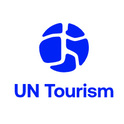Statistics to Guide Restart of Tourism in the Caribbean
From the need for enhanced political engagement to developing relevant expertise, the World Tourism Organization, jointly with the Caribbean Tourism Organization, have united their Members in the Caribbean to address the key challenges they face in making effective use of statistics to drive the restart of their tourism sectors.
Over the course of two days, a regional virtual workshop analysed the importance of tourism data for supporting the sector in the present and helping tourism to restart in the Caribbean in a timely and sustainable manner. The workshop brought together around 130 participants from 23 States, including the leaders of National Tourism Administrations, National Statistical Offices, Central Banks and Migration authorities. The high-level status of participants ensures that they will in turn spread UNWTO's technical expertise within their own countries, empowering more tourism professionals with knowledge of how best to analyse and use data to guide decisions.
Through the sessions, the Caribbean tourism community got a better understanding of the fundamentals of tourism statistics. They were also given an overview of UNWTO's Tourism Satellite Account (TSA) data, as well as guidance on how this can be used to guide decision-making.
Welcoming UNWTO's technical assistance, Neil Walters, Acting Secretary General of the Caribbean Tourism Organization said: "We recognize the importance of data and statistics in the development of COVID-19 recovery programs and comprehensive sustainable tourism strategies. We thank the UNWTO for supporting our efforts at capacity building in tourism statistics analysis and reporting in the Caribbean."
The workshop also emphasized the relevance of tourism statistics, both for informing the sector's response to the COVID-19 pandemic but also, looking ahead, for its role in guiding sustainable development across the Caribbean region. As with every other global region, the crisis has hit the Caribbean hard. According to the latest UNWTO data, Caribbean destinations experienced a 67% fall in international tourist arrivals in 2020 compared to the previous year. Given the reliance of many destinations on the sector, this has placed large numbers of livelihoods and businesses at risk and makes the timely restart of tourism vital.
RELATED LINKS
About UN Tourism
The World Tourism Organization (UN Tourism) is the United Nations agency responsible for the promotion of responsible, sustainable and universally accessible tourism.
As the leading international organization in the field of tourism, UN Tourism promotes tourism as a driver of economic growth, inclusive development and environmental sustainability and offers leadership and support to the sector in advancing knowledge and tourism policies worldwide.
Our Priorities
Mainstreaming tourism in the global agenda: Advocating the value of tourism as a driver of socio-economic growth and development, its inclusion as a priority in national and international policies and the need to create a level playing field for the sector to develop and prosper.
Promoting sustainable tourism development: Supporting sustainable tourism policies and practices: policies which make optimal use of environmental resources, respect the socio-cultural authenticity of host communities and provide socio-economic benefits for all.
Fostering knowledge, education and capacity building: Supporting countries to assess and address their needs in education and training, as well as providing networks for knowledge creation and exchange.
Improving tourism competitiveness: Improving UN Tourism Members' competitiveness through knowledge creation and exchange, human resources development and the promotion of excellence in areas such as policy planning, statistics and market trends, sustainable tourism development, marketing and promotion, product development and risk and crisis management.
Advancing tourism's contribution to poverty reduction and development: Maximizing the contribution of tourism to poverty reduction and achieving the SDGs by making tourism work as a tool for development and promoting the inclusion of tourism in the development agenda.
Building partnerships: Engaging with the private sector, regional and local tourism organizations, academia and research institutions, civil society and the UN system to build a more sustainable, responsible and competitive tourism sector.
Our Structure
Members: An intergovernmental organization, UN Tourism has 160 Member States, 6 Associate Members, 2 Observers and over 500 Affiliate Members.
Organs: The General Assembly is the supreme organ of the Organization. The Executive Council take all measures, in consultation with the Secretary-General, for the implementation of the decisions and recommendations of the General Assembly and reports to the Assembly.
Secretariat: UN Tourism headquarters are based in Madrid, Spain. The Secretariat is led by the Secretary-General and organized into departments covering issues such as sustainability, education, tourism trends and marketing, sustainable development, statistics and the Tourism Satellite Account (TSA), destination management, ethics and risk and crisis management. The Technical Cooperation and Silk Road Department carries out development projects in over 100 countries worldwide, while the Regional Departments for Africa, the Americas, Asia and the Pacific, Europe and the Middle East serve as the link between UN Tourism and its 160 Member States. The Affiliate Members Department represents UN Tourism's 500 plus Affiliate members.
